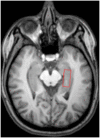Effects of Acupuncture on Cancer-Related Cognitive Impairment in Chinese Gynecological Cancer Patients: A Pilot Cohort Study
- PMID: 29806502
- PMCID: PMC6142078
- DOI: 10.1177/1534735418777109
Effects of Acupuncture on Cancer-Related Cognitive Impairment in Chinese Gynecological Cancer Patients: A Pilot Cohort Study
Abstract
Background: Among women in China, gynecological cancers are the second most common cancers after breast cancer. Cancer-related cognitive impairment (CRCI) has emerged as a significant problem affecting gynecological cancer survivors. While acupuncture has been used in different aspects of cancer care, the possible positive effects of acupuncture on cognitive impairment have received little attention. This study hypothesized that patients would demonstrate lower neurocognitive performance and lower structural connectivity compared to healthy controls. This pilot study also hypothesized that acupuncture may potentially be effective in treating CRCI of cancer patients by increasing brain structural connectivity and integrity.
Methods: This prospective cohort study consisted of 3 stages: the first stage included a group of gynecological cancer patients and a group of age-matched healthy controls. This baseline stage used a core set of neurocognitive tests to screen patients with cognitive impairment and used a multimodal approach of brain magnetic resonance imaging (MRI) to explore the possible neurobiological mechanism of cognitive impairment in cancer patients, comparing the results with a group of noncancer controls. The second stage involved assigning CRCI patients into the acupuncture intervention group, while patients without CRCI were assigned into the cancer control group. The third stage was a postintervention assessment of neurocognitive function by the same set of neurocognitive tests at baseline. To explore the possible neurobiological basis of acupuncture for treating CRCI, this study also used a multimodal MRI approach to assess changes in brain structural connectivity, and neurochemical properties in patients at pre- and postacupuncture intervention.
Results: This study found that the prevalence of cognitive impairment in Chinese gynecological cancer patients at diagnosis was 26.67%. When investigating the microstructural white matter in the brain, diffusion tensor imaging data in this study indicated that premorbid cognitive functioning (before clinical manifestations become evident) has already existed, as the global and local connectome properties in the entire patient group were lower than in the healthy control group. Using magnetic resonance spectroscopy, this study indicated there was a significant reduction of relative concentration of NAA ( N-acetyl aspartate) in the left hippocampus, comparing these results with healthy controls. Regarding the effects of acupuncture on reducing CRCI, patients in the acupuncture group reported better neurocognitive test performance after matching for age, menopausal status, cancer stage, and chemotherapy regimen dosage. On a microstructural level, acupuncture's ability to reduce CRCI may be attributed to a reduction in demyelination and an enhancement of the neuronal viability of white matter in the hippocampus.
Conclusion: This pilot study indicates that acupuncture is a promising intervention in treating CRCI in gynecological cancer patients undergoing chemotherapy; however, it requires evaluation in larger randomized controlled studies to definitively assess its benefit. By using a multimodal imaging approach, this pilot study also provides novel insights into the neurobiological basis of cognitive impairment on the human brain that has been induced by cancer and/or its treatment.
Keywords: Chinese women; acupuncture; cancer-related cognitive impairment; gynecological cancer; neurobiological mechanism.
Conflict of interest statement
Figures
References
-
- Chen W, Zheng R, Baade PD, et al. Cancer statistics in China, 2015. CA Cancer J Clin. 2016;66:115-132. - PubMed
-
- Lange M, Rigal O, Clarisse B, et al. Cognitive dysfunctions in elderly cancer patients: a new challenge for oncologists. Cancer Treat Rev. 2014;40:810-817. - PubMed
-
- Siegel RL, Miller KD, Jemal A. Cancer statistics, 2017. CA Cancer J Clin. 2017;67:7-30. - PubMed
-
- Treanor C, Donnelly M. Late effects of cancer and cancer treatment: a rapid review. J Community Support Oncol. 2014;12:137-148. - PubMed
-
- Craig CD, Monk BJ, Farley JH, Chase DM. Cognitive impairment in gynecologic cancers: a systematic review of current approaches to diagnosis and treatment. Support Care Cancer. 2014;22:279-287. - PubMed
Publication types
MeSH terms
LinkOut - more resources
Full Text Sources
Other Literature Sources
Medical





